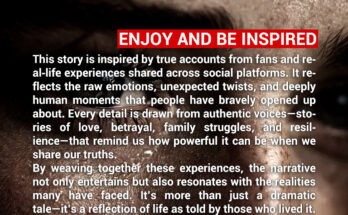I raised my daughter with everything I had—time, love, and money. I was a single mom, working long hours to give her a good life. I paid for her education, her first car, even helped with rent when she moved out. I never minded, because I believed in supporting her dreams. But as she grew older, the requests didn’t stop. They just got bigger. She’d call for help with bills, vacations, even luxury items she didn’t need. At first, I thought she was just struggling to find her footing. But eventually, I realized she wasn’t trying to stand on her own at all.
She had a job, but spent recklessly—designer clothes, expensive dinners, trips with friends. When I gently suggested budgeting, she brushed me off. “You’ve always helped me,” she’d say, as if that made it my duty forever. I started to feel more like a bank than a parent. The guilt was heavy—was I being selfish? Was I abandoning her? But deep down, I knew this wasn’t helping her grow. It was enabling her to avoid responsibility. And it was draining me—financially and emotionally.
The breaking point came when she asked for money to cover a vacation she couldn’t afford. I said no. She exploded—accused me of being cold, of not caring. It hurt more than I can explain. But I stood firm. I told her I loved her, but I wouldn’t fund her lifestyle anymore. I reminded her she was an adult now, capable of making her own way. She hung up on me. For days, I cried. I questioned myself. But I also felt something I hadn’t in a long time—relief.
Weeks passed before she reached out again. This time, her tone was different. She apologized—not just for the outburst, but for taking me for granted. She admitted she’d been avoiding adulthood, leaning on me because it was easier than facing her own finances. We talked, really talked, for the first time in years. I told her I’d always be here emotionally, but not as a financial crutch. She understood. It wasn’t a perfect fix, but it was a start.
Now, our relationship feels more honest. She’s learning to manage her money, and I’m learning to let go of the guilt. I still help in small ways—birthday gifts, the occasional dinner—but it’s no longer expected. I’m proud of her progress, and of myself for setting boundaries. Being a mother doesn’t mean sacrificing your own well-being. It means guiding your child to stand on their own, even when it’s hard.
I share this not to shame her, but to remind other parents: love doesn’t mean endless giving. Sometimes, the most loving thing you can do is say no. It’s not rejection—it’s respect. For them, and for yourself.


